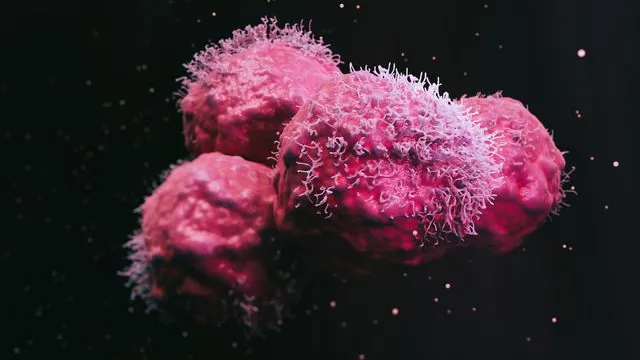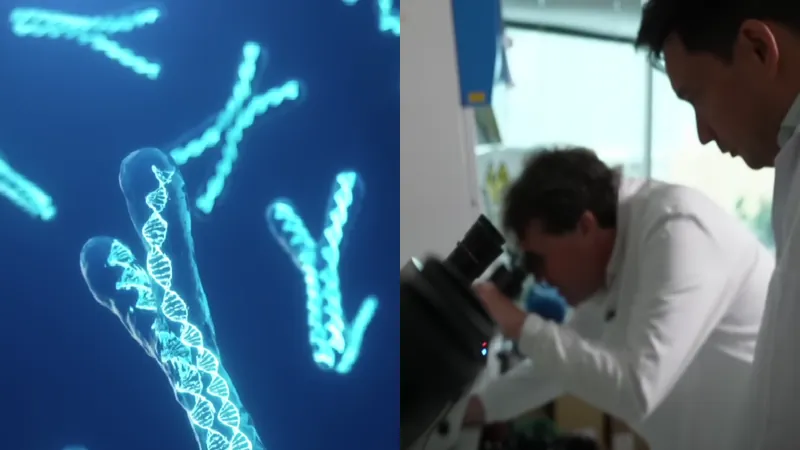
Breakthrough Technology: New Low-Cost Device Detects Prostate and Colorectal Cancer in Just One Hour!
2024-10-28
Author: Mei
Introduction
In an exciting development for cancer diagnostics, researchers at The University of Texas at El Paso (UTEP) have engineered a groundbreaking portable device that detects colorectal and prostate cancer more effectively and affordably than current methods. Particularly beneficial for developing countries facing higher cancer mortality rates due to limited access to diagnostics, this innovative invention promises to enhance early cancer detection.
Affordable and Accessible
Dr. XiuJun (James) Li, a chemistry and biochemistry professor at UTEP, stated, “Our new biochip device is low-cost—just a few dollars—and sensitive, making accurate disease diagnosis accessible to everyone, regardless of their economic status. It is portable, rapid, and does not require specialized instruments.”
Traditional Methods and Their Limitations
Published in the esteemed journal *Lab on a Chip*, the team’s study reveals a much-needed solution to the delays associated with traditional cancer testing methods. The widely used ELISA (Enzyme-Linked Immunosorbent Assay) can take over twelve hours to process samples and requires expensive equipment. These delays are particularly detrimental in remote or underserved regions, contributing to poorer cancer survival rates as samples may need to be transported to urban centers equipped with appropriate technology.
Crucial Early Detection
Li emphasized the importance of early detection, noting, “If you can identify biomarkers early on, before the cancer spreads, a patient’s chance of survival significantly increases. Any delay in testing, especially in regions lacking advanced tools, can be detrimental to patient outcomes.”
Innovative Technology
The innovative device utilizes microfluidics, enabling it to carry out various functions using minimal fluid samples. Employing a unique 'paper-in-polymer-pond' design, the device introduces blood samples into tiny wells containing a specialized paper. This paper effectively captures cancer protein biomarkers within minutes, altering color to indicate the type and progression of cancer.
Superior Performance
In an impressive feat, the device can analyze samples within just one hour—far surpassing traditional methods that take up to 16 hours. Remarkably, it is approximately ten times more sensitive than conventional tests, which are often unable to detect low quantities of biomarkers characteristic of early-stage cancers. This heightened sensitivity is critical, as it allows for earlier intervention and potentially life-saving treatment.
Future Prospects
Currently focused on prostate and colorectal cancers, Dr. Li expressed confidence that this technology could be adapted for various other cancer types. However, before this pioneering device can be made available for public use, it must undergo clinical trials, and final FDA approval is required—a process that could take several years.
Impact on Cancer Diagnostics
Robert Kirken, Dean of the College of Science, remarked on the significance of this innovation, stating, “Dr. XiuJun Li's work revolutionizes point-of-care diagnostics and simplifies the detection process, which is especially advantageous for resource-limited settings. This advancement is a game-changer for early cancer diagnosis and improved patient outcomes.”
Conclusion
As this transformative device moves closer to reality, the world eagerly awaits its potential impact on cancer detection and treatment, heralding a new era of accessible healthcare solutions. Stay tuned for updates on this promising technology and its journey toward widespread clinical application!


 Brasil (PT)
Brasil (PT)
 Canada (EN)
Canada (EN)
 Chile (ES)
Chile (ES)
 Česko (CS)
Česko (CS)
 대한민국 (KO)
대한민국 (KO)
 España (ES)
España (ES)
 France (FR)
France (FR)
 Hong Kong (EN)
Hong Kong (EN)
 Italia (IT)
Italia (IT)
 日本 (JA)
日本 (JA)
 Magyarország (HU)
Magyarország (HU)
 Norge (NO)
Norge (NO)
 Polska (PL)
Polska (PL)
 Schweiz (DE)
Schweiz (DE)
 Singapore (EN)
Singapore (EN)
 Sverige (SV)
Sverige (SV)
 Suomi (FI)
Suomi (FI)
 Türkiye (TR)
Türkiye (TR)
 الإمارات العربية المتحدة (AR)
الإمارات العربية المتحدة (AR)